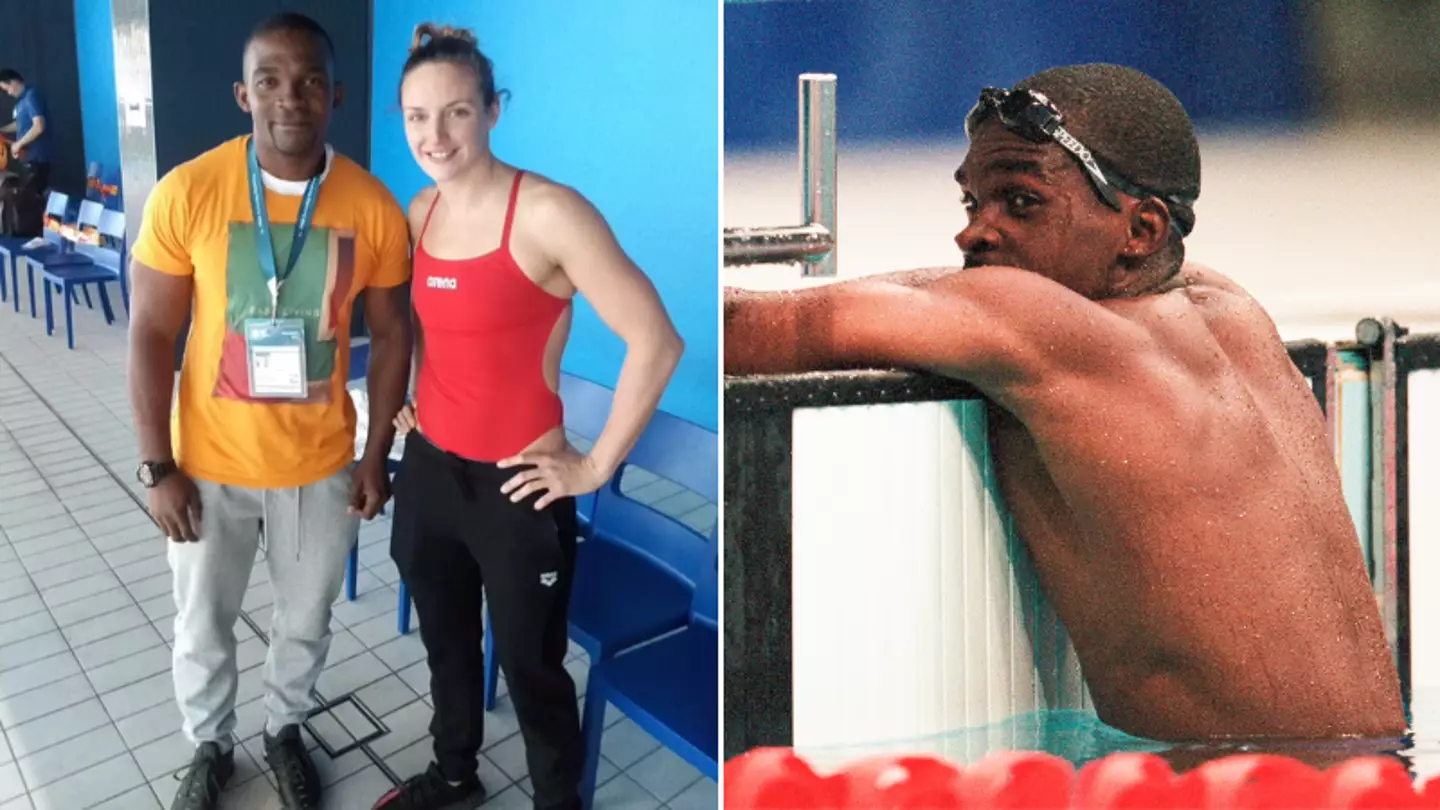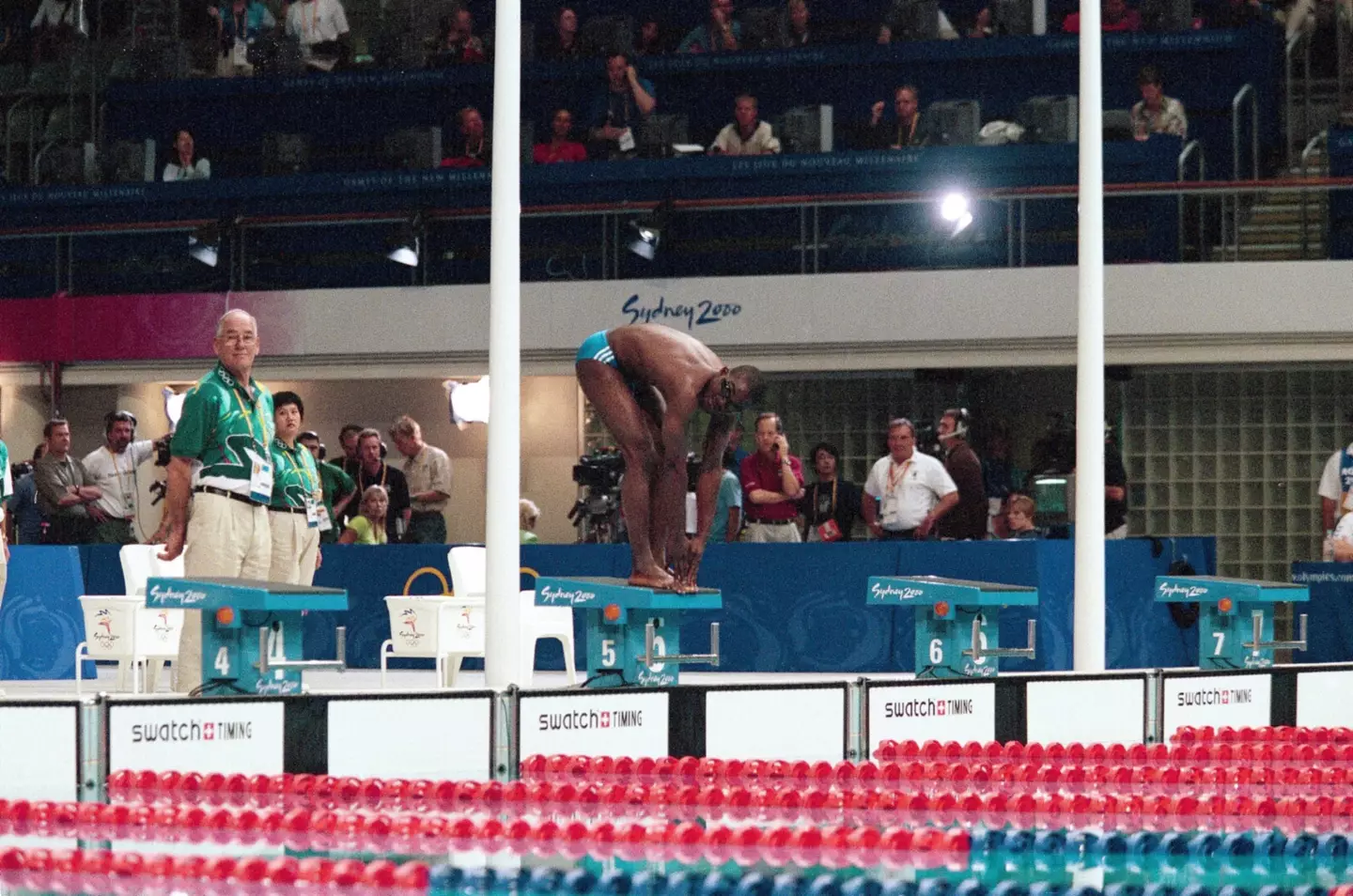
Believe it or not, one record-breaking Olympic swimmer couldn't actually swim before competing at the Olympic Games.
Swimming has given the Olympic Games some of its greatest ever athletes, including the most successful and most decorated Olympian of all time, Michael Phelps.
The American won a total of 28 medals - 23 of which were gold - across four separate Games, creating countless iconic moments along the way.
However, despite his historic achievements, there is another swimmer who can claim to be the sport's most iconic Olympian.
Advert
Eric Moussambani - better known as Eric the Eel - became an overnight sensation when he swam at the 2000 Olympics in Sydney.
The man from Equatorial Guinea made history when he took part in the heats for the 100m freestyle. The then 22-year-old recorded a time of 1:52.72, to this day the slowest ever Olympic time in the event.
Ordinarily, that kind of record would be something an athlete would be desperate to forget about, but Moussambani's story is rather different.
He gained entry to the Olympics without meeting the minimum qualification requirements as Equatorial Guinea were handed a wildcard place and nobody else turned up to the team's trials.
The wildcard scheme was introduced by the International Olympic Committee to encourage participation by developing nations lacking funding and full training facilities.
Despite his record-breaking time, Moussambani won his heat after both of his competitors were disqualified due to false starts. The footage of him swimming alone in the pool will forever be enshrined in Olympic folklore.
Although Eric's time was far too slow to secure him a place in the next round, he set a new personal best and an Equatoguinean national record.

What makes Moussambani's story even more remarkable is that he only began to swim eight months before the Sydney Games, using lakes and a 12-metre hotel pool to train. Before the Sydney Games he had never seen a 50-metre pool before.
Eric's story is one of perseverance and determination, both physically and psychologically.
"The last 50m was the hardest time in my life," he told Mail Sport.
"There was a time that I couldn't feel my legs, my arms. I was just moving my arms but I didn't feel like I was moving. I was very, very tired. I was giving my last effort to complete it. I was almost, almost, drowning.
"But when I heard people clapping and cheering my name that gave me more power and more courage to complete the other 50m. It was the first time in my life I swam 100m.
"At the end, I felt so tired that I couldn't even speak. TV were trying to ask me questions but I couldn't breathe. I needed air.
"I went to the changing room and fainted. They gave me air and after 15 minutes I woke up and I asked 'What am I doing here?' I said I needed to sleep. I slept from 10am until 5pm."
Aside from an incredible personal story, Moussambani created a legacy in his home country.
The government of Equatorial Guinea invested in swimming infrastructure following Eric's exploits, and in 2012 he became his nation's national swimming coach.
"We have good swimmers, they are improving, but my dream is to have competitive swimmers in the Olympics," he said.
"I will go there as coach because when I am with them they have courage. I am like a symbol, I am an icon here in my country. When it comes to swimming, my name is always there."